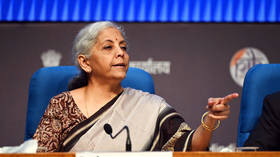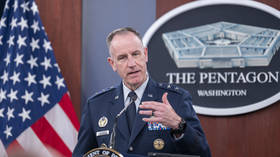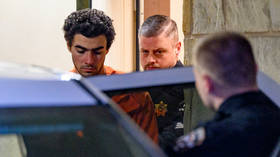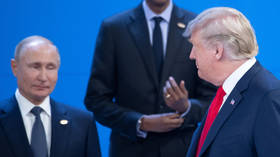Iraq bans homosexuality
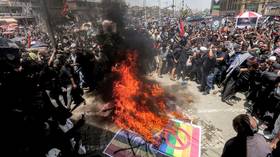
Iraq’s parliament has passed a law banning same-sex relations and transgenderism. The measure was condemned by the US and UK, but the speaker of the parliament described it as “a necessary step to protect the value structure of society.”
The amended Law on Combating Prostitution and Homosexuality passed the legislature on Saturday. According to a copy of the law seen by Reuters, it mandates prison sentences of 10-15 years for anyone engaging in homosexual relations, seven years for anyone who promotes homosexuality or prostitution, and between one and three years for anyone who changes their “biological gender” or dresses in an effeminate manner.
Acting Iraqi parliamentary speaker Mohsen Al-Mandalawi said in a statement that passing the law was “a necessary step to protect the value structure of society” and to “protect our children from calls for moral depravity and homosexuality.”
Iraq’s 1969 penal code did not explicitly criminalize homosexuality, but offered no protections from extrajudicial harassment to gays and lesbians. An update to the law in the 1980s legalized the ‘honor killing’ of homosexuals by their family members, while a 1993 amendment to the constitution introduced the death penalty for homosexual acts.
After the US invaded Iraq in 2003, occupation governor Paul Brenner abolished the death penalty and rolled the penal code back to its 1969 iteration.
Western media outlets reported an uptick in attacks on homosexuals by police and militias after the partial withdrawal of American troops in 2012, despite the US State Department claiming in 2019 that it had trained Iraqi security forces “on the proper observance of human rights.”
The US is “deeply concerned” by Saturday’s vote, State Department spokesman Matthew Miller said in a press release. “This amendment threatens those most at risk in Iraqi society and weakens Iraq’s ability to diversify its economy and attract foreign investment,” Miller added.
In a social media post, British Foreign Secretary David Cameron called the law “dangerous and worrying,” and said that “no one should be targeted for who they are.”
No matter its legal status, homosexuality has always been a taboo among Iraq’s conservative Shia majority. LGBTQ culture is seen by some Iraqis as a hostile Western ideology, and rainbow-colored ‘Pride’ flags are sometimes burned alongside the flags of Western nations at Iraqi protests.






